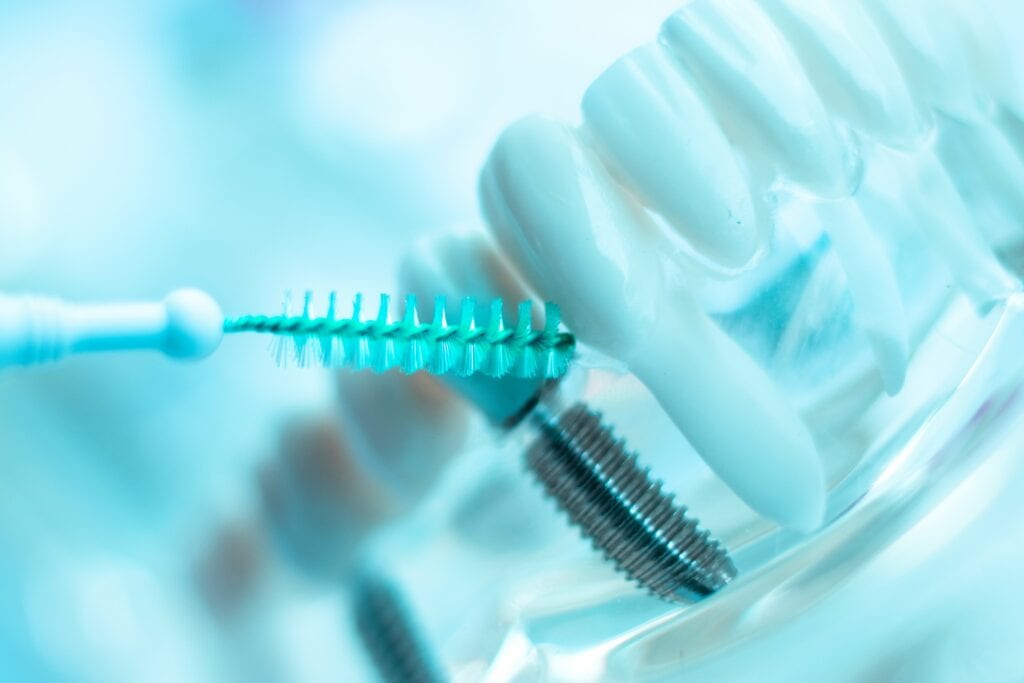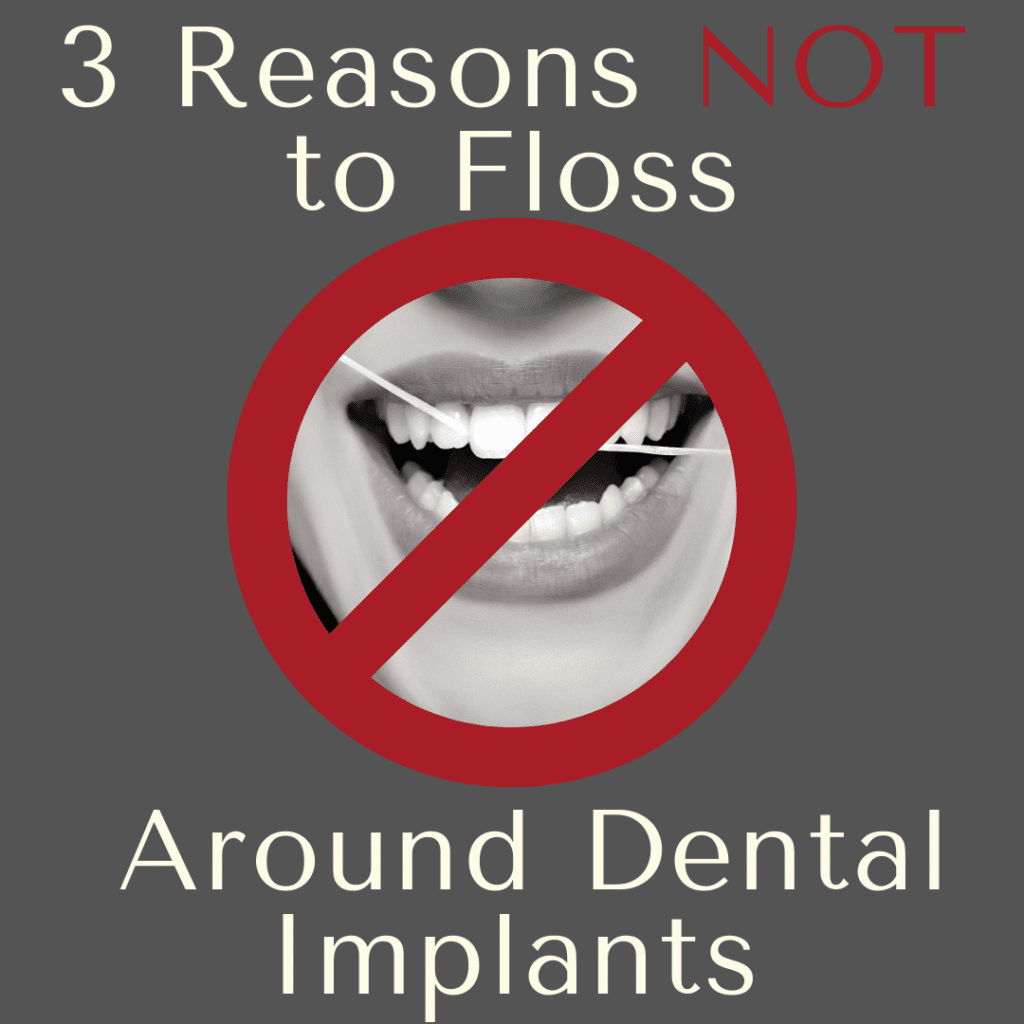Dental implants are tooth restoration options for missing teeth that are highly similar to natural teeth. In fact, dental implants near the same structure, appearance, and function of natural teeth. Because of the fact that dental implants are so similar to natural teeth, many people believe that they can care for their dental implants much like they would their natural teeth. Well there is some truth to this, it is also important to realize that dental implants and they require their own oral hygiene techniques. For example, many dentists are now recommending to not use dental floss around implants for these three reasons:
Not Effective
One of the first reasons why dentists are recommending some of their patients avoid dental floss is because dental floss is not always effective at removing plaque and food debris from around dental implants. This is primarily because dental floss is designed to work between natural teeth and not dental implants. The spacing between dental implants can vary due to the fact that dental implants come in different shapes and sizes. In some cases, dental implants are also placed at different depths. All these factors can ultimately affect the spacing of dental implants, which can cause dental floss to not be as effective. Instead, your dentist may recommend using an interdental brush, since they come in various shapes and sizes and can effectively clean around dental implants.

Floss Shreds
In addition to the fact that dental floss is not always effective at removing plaque and food debris, dental floss is also known to break easily. When dental floss breaks, it often shreds and leaves behind small particles or pieces of the floss. When pieces of floss become trapped between the implant and the gums they often cause an infection known as peri-implantitis, which is associated with implant failure. For this reason, your dentist may recommend using Interdental brushes, since they do not shred. Additionally, your dentist may also recommend using a water flosser, which uses a pulsating stream of water to remove plaque and debris instead of a piece of floss.
Flossing Technique Can Cause Problems
The final reason why your dentist may recommend against using dental floss around dental implants is due to technique. The effectiveness of flossing is ultimately dependent upon an individual’s flossing technique. If you struggle with maintaining the proper technique, you may be at risk for missing places or even damaging the area around the implant. This is because there is a thin barrier between the implants and the underlying bone that can be easily damaged with an aggressive flossing technique. If this barrier becomes broken, then this allows bacteria to invade the underlying bone tissue and can result in bone loss, as well as an implant failure. Therefore, to prevent accidental damage to your dental implants, your dentist may recommend using a water flosser to clean around your implant. Water flossers are effective at removing plaque, while also minimizing the risk of damaging the tissues around the implant.

Dr. Admar holds dual certificates — a Bachelor of Dental Surgery (BDS) in 2010 from India and a Doctor of Dental Surgery (DDS) in 2014 from Canada. He is now a full time practicing dentist in Kamloops where he provides a variety of services, including emergency dentistry. Dr. Admar spends hundreds of hours in continued dental education to stay up to date in cosmetic and implant dentistry and he has achieved several advanced qualifications.


